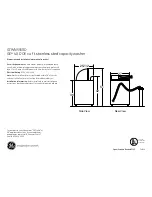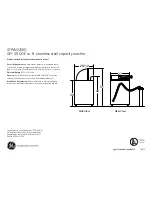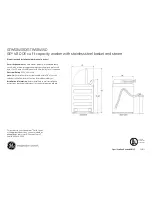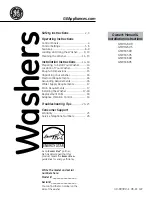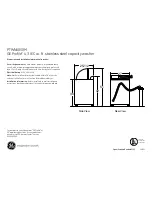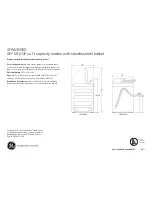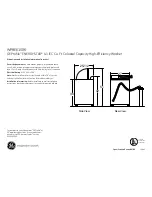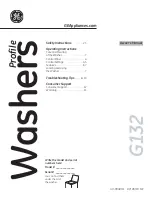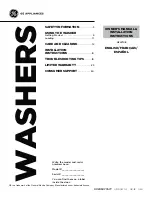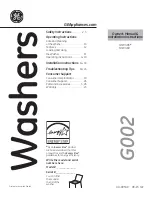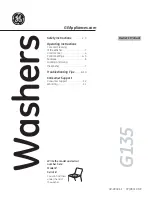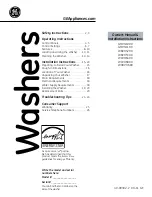
Title
Rev 1.00A
Installation & Operation
Model
EAH / EC Dishwasher
01/26/04
Page 18
ADDENDUM FOR MACHINES INSTALLED IN THE CITY OF CHICAGO
All food dispensing establishments using chlorine or other approved chemical sanitizers shall at all times
maintain an adequate testing device.
Dishes and other eating and drinking utensils to be washed in a dishwashing machine shall be properly scraped
and pre-rinsed and shall be stacked in racks or trays so as to avoid overcrowding and so as to permit wash and
rinse waters to rinse waters to reach all surfaces of each utensil.
In machine washing, multi-use eating and drinking utensils shall be washed in water containing suitable
detergent at a temperature from 120 degrees F. to 140 degrees F. or other method approved by the Department of
Health.
The water in the wash tank shall be changed during operation as often as necessary to keep it reasonably clean.
An effective concentration of detergent in the wash water shall be maintained at all times.
Bactericidal treatment shall consist of exposure of all surfaces of dishes and utensils being washed to a rinse of
clean water, at a temperature of not less than 180 degrees F. or other method approved by the Department of
Health.
All dishwashing machines shall maintain a flow pressure not less than 15 or more than 25 pounds per square inch
on the fresh water line at the machine and not less than 10 pounds per square inch at the rinse nozzles. A suitable
gauge cock shall be provided immediately upstream from the final rinse sprays to permit checking the flow of the
final rinse water. An easily readable thermometer accurate to
±
2 degrees F. shall be provided on both the wash
and rinse water lines of the dishwashing machine which will indicate the temperature of the water solution
therein.
Dishwashing machines shall be thoroughly cleaned at least once each day. The pumps and the wash and rinse
sprays or jets shall be so designed that a forceful stream of water will reach all surfaces of the utensils when they
are properly racked. These parts shall be thoroughly cleaned at least once each day. The pumps and the wash and
rinse sprays or jet shall be so designed that a forceful stream of water will reach all surfaces of the utensils when
they are properly racked. These parts shall be readily accessible for inspection and cleaning.
After bactericidal treatment, utensils and containers shall be stored at a sufficient height above the floor in a
clean, dry place protected from flies, splash, dust, overhead leakage and condensation, and other contamination
until used for serving.
Drain racks, trays and shelves shall be made of non-corrodible material and shall be kept clean.
In handling containers and utensils the surface thereof which come in contact with food or drink shall not be
touched by hands, except during the process of washing.
Tables for clean and dirty dishes and food shall be so arranged that the dirty dishes will be as far removed from
the food and clean dishes as may be possible.
All single-service articles and utensils shall be purchased in sanitary cartons and stored therein in a clean, dry
place until used, and after removal from the cartons, these articles shall be handled in such a manner to prevent
contamination.
Please note the following procedures must be followed for City of Chicago Approval:
1.
All low energy models must have low-level sani alarms, both visual and audio.
2.
All models must have a City of Chicago approval data label affixed to the machine.
3.
Chlorine sanitizer must be a minimum of 100 PPM.

















